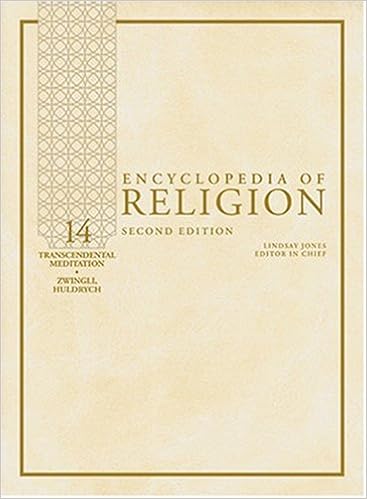Vinoba Bhave
Vinoba Bhave




Question
The Unsung Champion of India
Gandhi is ubiquitous for his usage of nonviolent protest to free India from the restraints of the British Empire, a style that was later adopted during the Civil Rights Movement. The attitude and persistence of Mahatma Gandhi are alive in America today, but there is rarely any acknowledgement of his most astute student— Vinoba Bhave. Vinoba Bhave (1895-1982) graduated from Maharaja Sayajirao University of Baroda and was about to take the British intermediate exam before he encounter Gandhi's writings in a 1918 newspaper, promptly dropped out of his studies in pursuit of participating in Gandhi's social justice works and activities. Bhave was jailed for five years starting in 1940 for being the head of non-violent resistance protests against British Emperial rule. During his sentence, he ended up learning several south Indian languages and wrote two books: Ishavasyavritti and Sthitaprajna Darshan. Bhave continued The fact remains however, that Vinoba Bhave is an unknown figure in American culture. By the phrase unknown, I do not mean that his impact on the world was not measured, but he is most certainly not recognized in our society. Bhave was Gandhi's first satyagrahi, his first "vindicator of truth", and was a key figure behind the scenes during the Indian independence movement. Throughout his life, Bhave was a charitable, scholarly, and devout Jainist leader who wished to heal the divisions between people. The Bhoodan Movement was created to blur the harsh Indian caste system, through Bhave's requests tp wealthy landowners to donate excess land to those who had none, the "untouchables". When he was too old to actively serve his people, Bhave retreated to the Brahma Vidya Mandir ashram, where he continued to educate and pray in solitude. Vinoba Bhave is the epitome of a "spiritual guru", and more people should know about his charitable actions that constituted to the economic and intellectual advancement of those predominately regarded as poor and powerless. I believe that Bhave actions demonstrate the epitome of what it truly means to be an exemplar of justice and advocate for the people; his actions in India only serve to constitute the bulk of his achievements, but his message of activism should be received by everyone worldwide.
Articles
-
"Obituary": Vinoba Bhave Bhave's obituary.

-
THE POLITICAL AND ECONOMIC PHILOSOPHY OF ACHARYA VINOBA BHAVE A writing by G. P. Srivastava that details his insight into Vinoba Bhave's creed of a decentralized communal society
-
The Land Gift Movement in India: Vinoba Bhave and His Achievement This article by the Royal Institute of International Affairs is a contemporary lens bearing witness to Bhave's land gifting crusade.
Books
-
-
 From 50 Years Ago: Two Acres for Vinoba
by
A short piece that includes a quote of Vinoba
during his deliberations over land and his persuasive
efforts in securing land for those of extremely low economic status.
ISBN: 0012-9976Publication Date: 09/2020
From 50 Years Ago: Two Acres for Vinoba
by
A short piece that includes a quote of Vinoba
during his deliberations over land and his persuasive
efforts in securing land for those of extremely low economic status.
ISBN: 0012-9976Publication Date: 09/2020 -
 Encyclopedia of Religion
by
Brief overview of Bhave's early life and adolescence.
ISBN: 9780028659978 002865997XPublication Date: 2005
Encyclopedia of Religion
by
Brief overview of Bhave's early life and adolescence.
ISBN: 9780028659978 002865997XPublication Date: 2005
Bhave Videos
-
Bhave Doc A documentary on the social work of Vinoba Bhave that focuses on his domestic achievements in raising the economic status of India's lowest caste, in addition to his involvement in the liberation of India.
-
Bhave Speech A 1972 speech by Vinoba Bhave from the Archives of All India Radio. In the video, Bhave addresses the delegates of All India National Education Conference.
Bhave Quotes


More Information
Griffiths, Bede. “VINOBA BHAVE.” Blackfriars, vol. 38, no. 443, 1957, pp. 66–71. JSTOR, www.jstor.org/stable/43815349
Griffith’s article focuses on the authenticity of India’s saints, denoting Ramana Maharshi as being a character of extreme holiness, before divulging the experience of a midlife Bhave. Interestingly enough, Bhave’s father wanted his sons to receive a Western education in England, and Bhave himself proved capable in mathematics and language (he is fluent in most Indian languages). From a young age, Bhave depicted atypical youthful behavior, wanting to become a sunyasi (wandering hermit) and found Gandhi after being disillusioned by traditional agitation means. Bhave’s biographer noted the strong distinction between Bhave and Gandhi; whereas the latter was fully human and exhibited imperfections, the former overcame his own human inhibitions and dedicated his life to the pursuit of God in the form of social activism. Griffith concludes his article with an exhibition into Bhave’s nonviolent and non-ownership principles and how they can transition towards the ideal of self-supporting communities.
"Vinoba Bhave." Britannica Academic, Encyclopædia Britannica, 31 Oct. 2011. academic-eb-com.dbproxy.lasalle.edu/levels/collegiate/article/Vinoba-Bhave/79053
Vinoba Bhave was Gandhi’s foremost disciple and one of the greatest social reformers in India, founding the group Bhoodan Yajna. Bhave was born in the Brahman upper caste and left his studies to follow Gandhi, where he became aware of the British Empire and its imposing rule on India. In 1951, Bhave actively campaigned the land-gift movement, wherein upper caste people would give land to those among the lowest caste as an extension of nonviolence and empathy. Bhave took a vow of silence in 1975, and through his influence made significant reform in Indian government, passing away at the age of 87.

